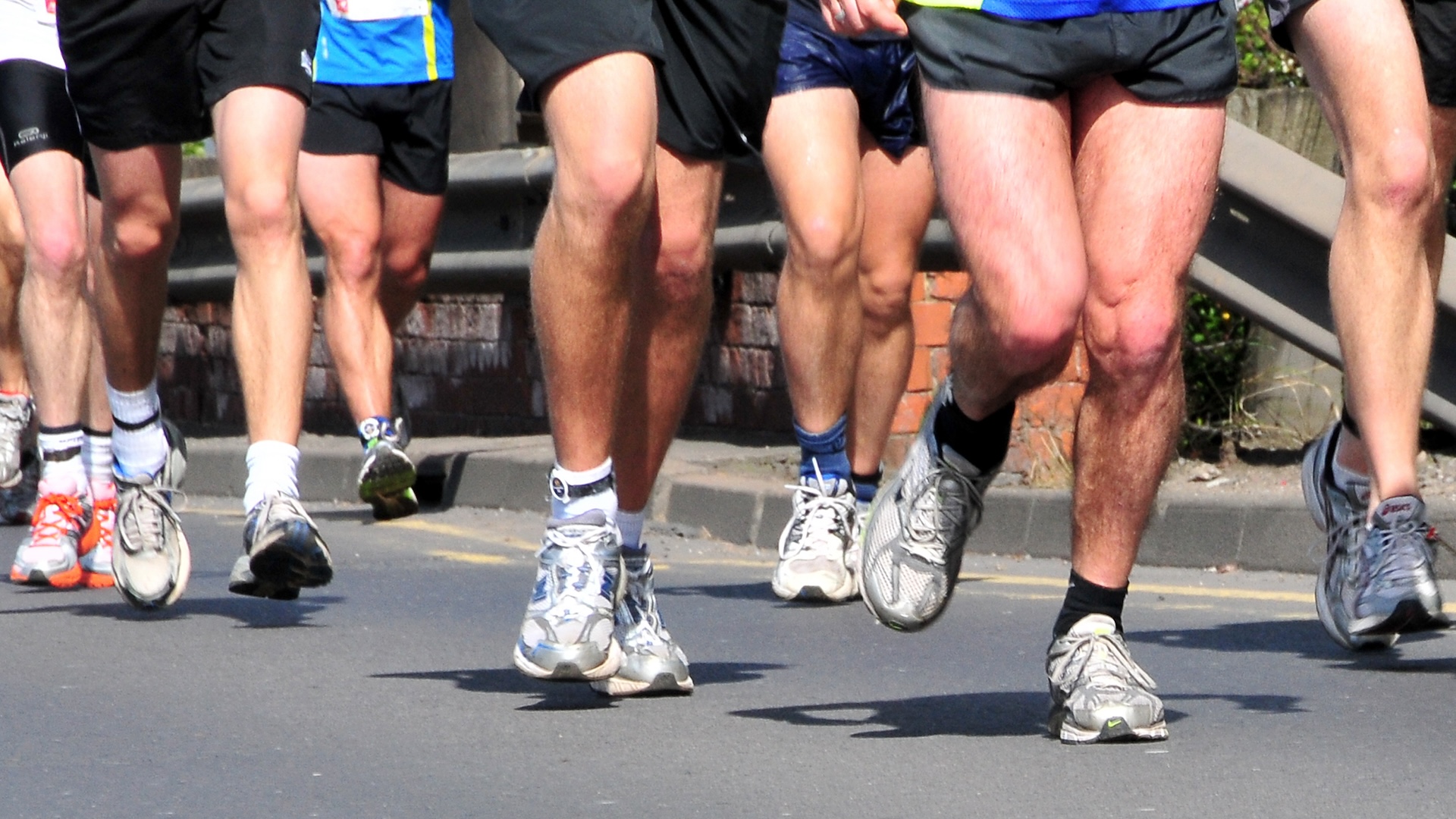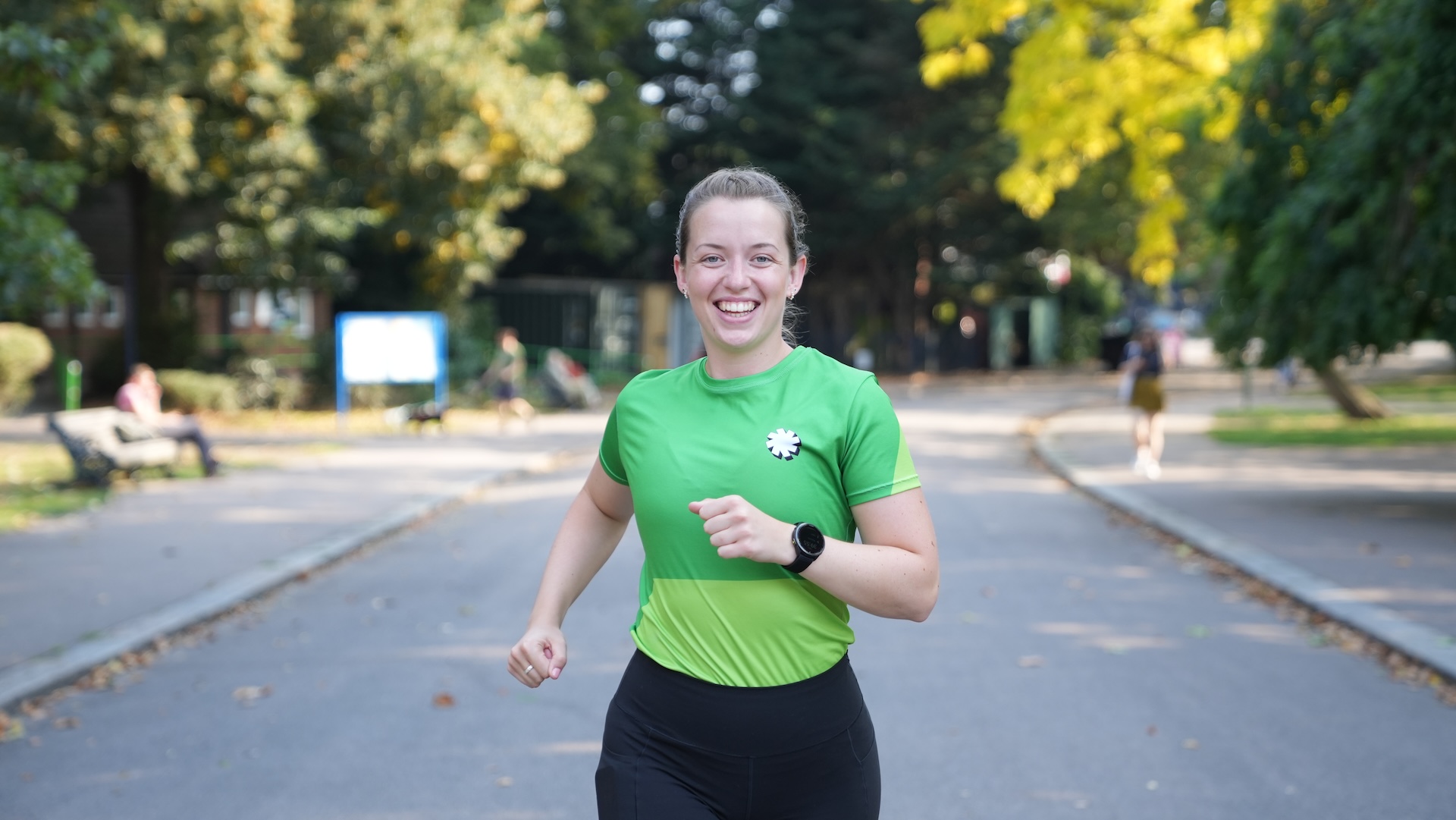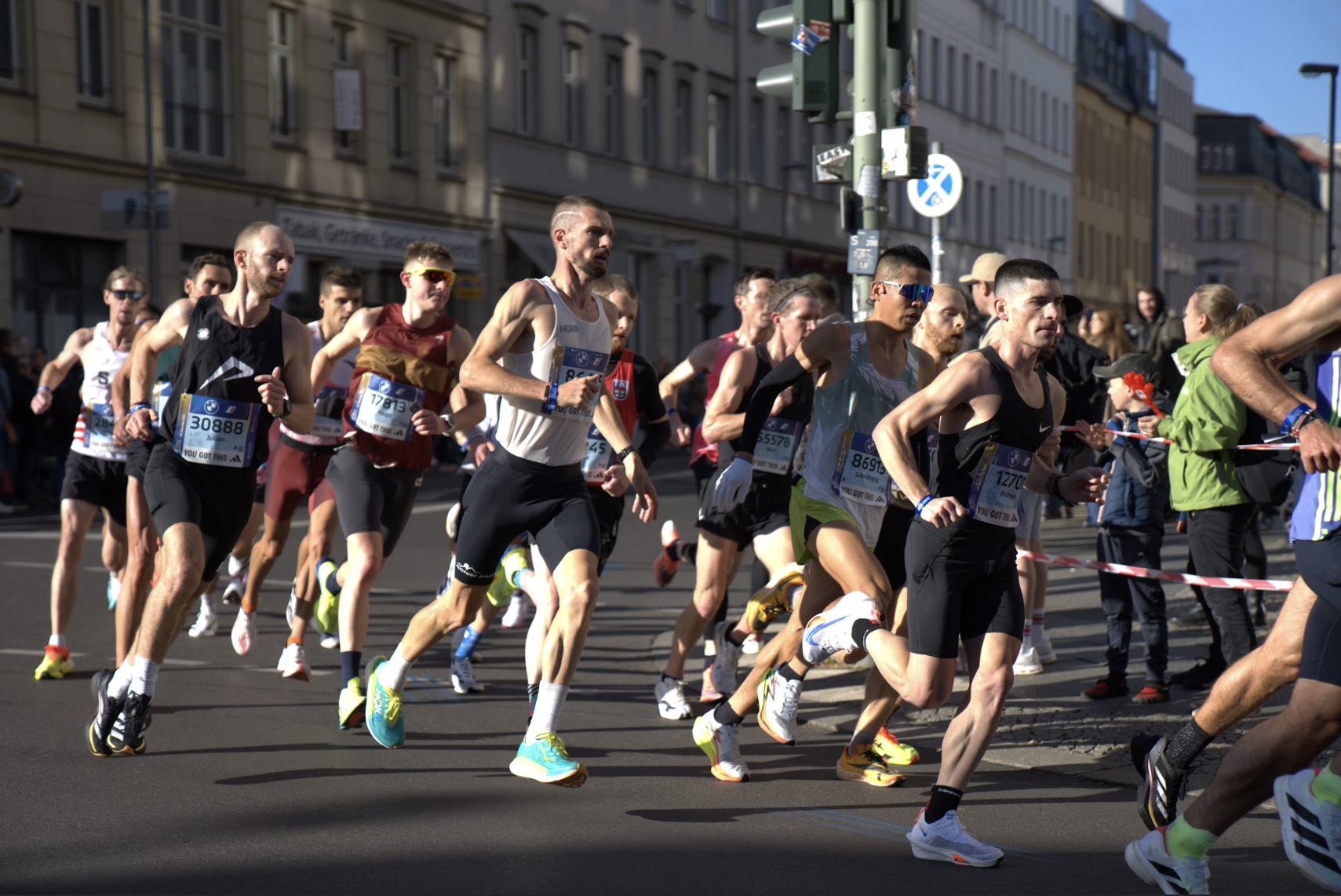Is Running Bad For Your Knees?

Why do so many people think running is bad for your knees? Is it a big myth that running is bad for your knees? Could running even be good for your knees? We checked the science to see what it really says.
KNEE PAIN IS ONE OF THE MOST COMMON RUNNING INJURIES
Let’s start by addressing the inarguable fact that knee pain is one of the most common running injuries (along with ankle pain, shin splints and plantar fasciitis).
However, when studies look at non-runners, the prevalence of knee pain is similar – whether we run or not, a lot of us get sore knees!
The most common running knee problems are iliotibial band syndrome (‘IT band’) and ‘patellofemoral pain syndrome,’ better known as ‘runner’s knee’.
IT band syndrome is an overuse injury which strains the fascia which runs down the outside of the leg from the hip to the knee, and usually presents as pain on the outside of the knee.
Patellofemoral pain syndrome (also called PFPS) is not one specific injury, and it’s a general discomfort felt in the front of the knee or deep within it, where the kneecap (patella) isn’t able to track around the joint as it should. PFPS may have numerous different causes, but in general it’s from overuse or a strength imbalance somewhere between your foot and your glutes.
One large study found that more non-runners had ‘runner’s knee’ than those who run regularly – in fact, around one-third of people who suffer from knee pain have PFPS.
RUNNING’S IMPACT ON THE KNEES
When we run, each step causes a large amount of impact through our foot, lower leg and knee. There’s long been a misconception that each new step is gradually wearing down something in the knees, and may lead to osteoarthritis, which is when the cartilage deteriorates where the bones meet and it causes pain – this is the most common kind of arthritis in the body.
But many studies have shown that running can strengthen and protect the knees against common issues like osteoarthritis, and running may even help to stimulate cartilage repair rather than wearing it down.
Other studies have shown that there’s no increased risk in osteoarthritis in runners compared to non-runners, including one study which surveyed 3,800 finishers of the Chicago Marathon. While this meta-analysis found that the greatest risk of osteoarthritis was in either professional athletes or non-runners, with recreational runners having much lower prevalence of knee pain. This study found similar results: knee injuries or pain is most common in either those who are new to running or those who train especially hard with high mileage. Runners in between who run regularly and consistently report the fewest knee issues.
Then there’s this study which looked at people who suffer from knee osteoarthritis and found that those who continued to run did not have increased symptoms – indeed their symptoms improved, leading the study to suggest running need not be discouraged in people with knee osteoarthritis. It’s thought that running may even encourage the body to produce more synovial fluid which helps to ‘lubricate’ the joints.
IF RUNNING CAN BE GOOD FOR YOUR KNEES, THEN WHY DO MY KNEES HURT?!
Knee pain typically comes from overuse – we run too much, and have strength imbalances which then cause inflammation and discomfort. The main issues develop when we try to run too many miles at a hard intensity.
Overuse injury is not unique to our knees, and aside from sprains or serious ligament, tendon or muscle tears, overuse is the most common reason for pain in our lower limbs and feet.
The reason that knee pain mostly affects new runners and high-volume runners is because the new runners try to run too far, too soon, which having the right strength to be able to handle it, while the long-distance runners while suffer from pain when they’re trying to push harder and further in their training without allowing adequate rest and recovery.
HOW CAN YOU FIX KNEE PAIN?
As knee pain is typically an overuse issue, the first thing to do is to rest or reduce your training volume and intensity, perhaps moving to non-impact cardio like cycling, swimming or the elliptical. You may want to ice the knee to help reduce inflammation. If it doesn’t improve over a few days or weeks then it’s best to see your doctor or a physiotherapist as they can fully examine and diagnose you.
Next you need to figure out where your strength imbalance is, and to work out how to correct that imbalance (a trained physiotherapist can help you here). For many runners it’ll be a weakness around the hips and glutes, which then impacts the knee. Strength exercises like glute bridges, step ups and step downs, lunges, squats and deadlifts can all help create strength around the glutes.
HOW CAN YOU AVOID KNEE PAIN WHEN RUNNING?
Gradually increase your mileage and intensity. We advise increasing your mileage by no more than 10% each week, and also stick close to the 80/20 rule each week, where 80% of running is easy and no more than 20% is harder and faster – we need the slower miles to build up general strength, and mitigate the risks that come when we try to run fast.
You should also get strong in other areas, this includes focusing on glutes, hamstrings and quads with fundamental movements like deadlifts, squats and lunges. You can think of some of these things like prehab and you do this work before your knees even begin to hurt.
If you know you’re susceptible to knee pain, then consider the running trainers you wear and look for shoes with increased stack height and softer foams, and try running on softer surfaces like grass and light trails.
SO IS RUNNING BAD FOR YOUR KNEES?
Next time someone asks you if your knees hurt because you run, you can hopefully tell them that your knees are fine (chances are everything else hurts, but that’s a different story!).
Many studies have shown that the consistent action of easy-paced running, as well as strength exercises for your legs, actually makes you less likely to suffer from knee injury, pain or osteoarthritis.
So no, running isn’t bad for your knees. In fact, as long as you’re sensible with how much you run and you allow your body to recover, then running may actually be good for your knees!



























Running News
Ingebrigtsen Stars at World Athletics Indoor Championships 2025 – Plus All The Winners!
Sam Ruthe Is First 15-Year-Old To Run A Four-Minute Mile!
Eliud Kipchoge Will Run The 2025 Sydney Marathon!